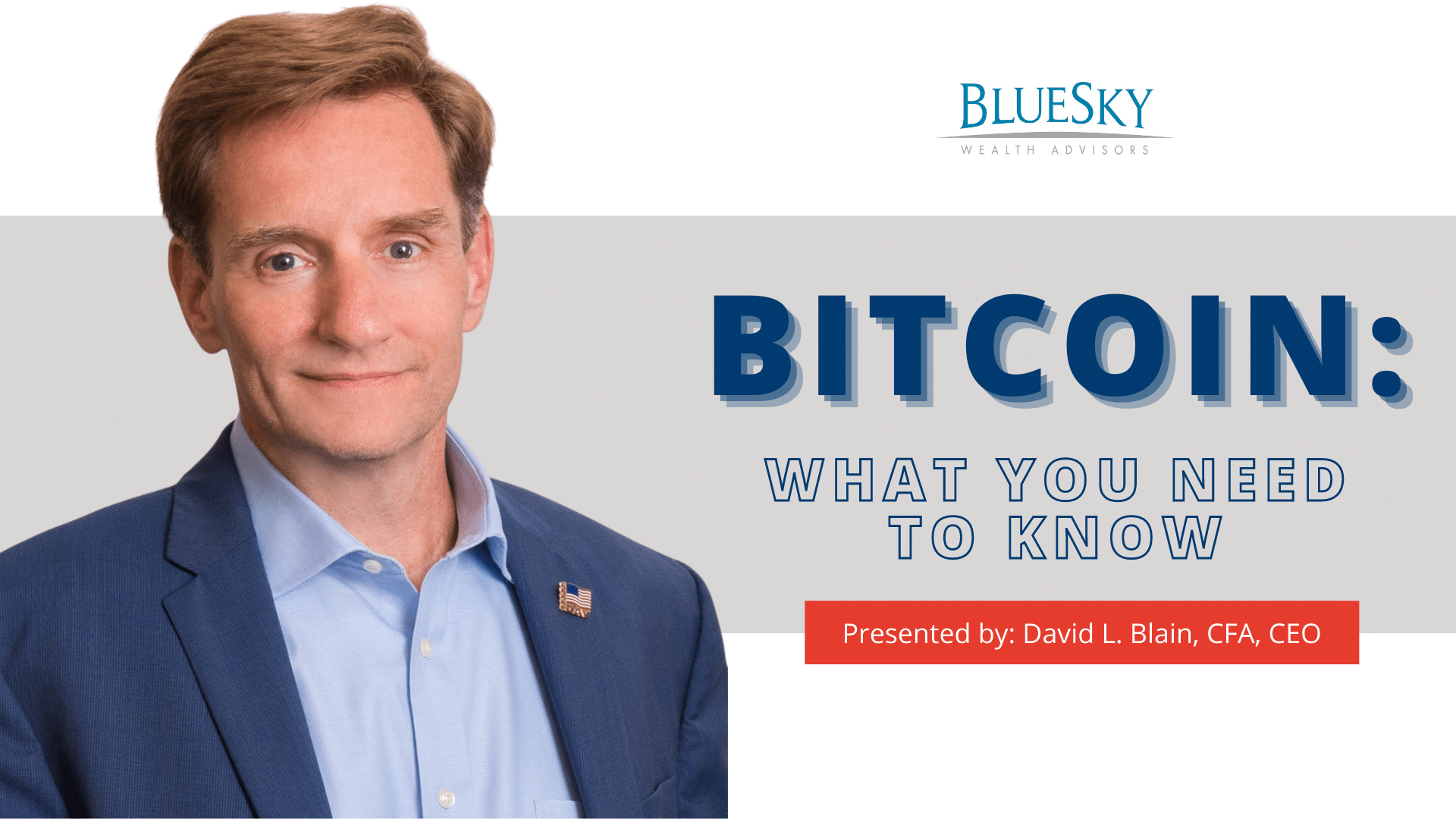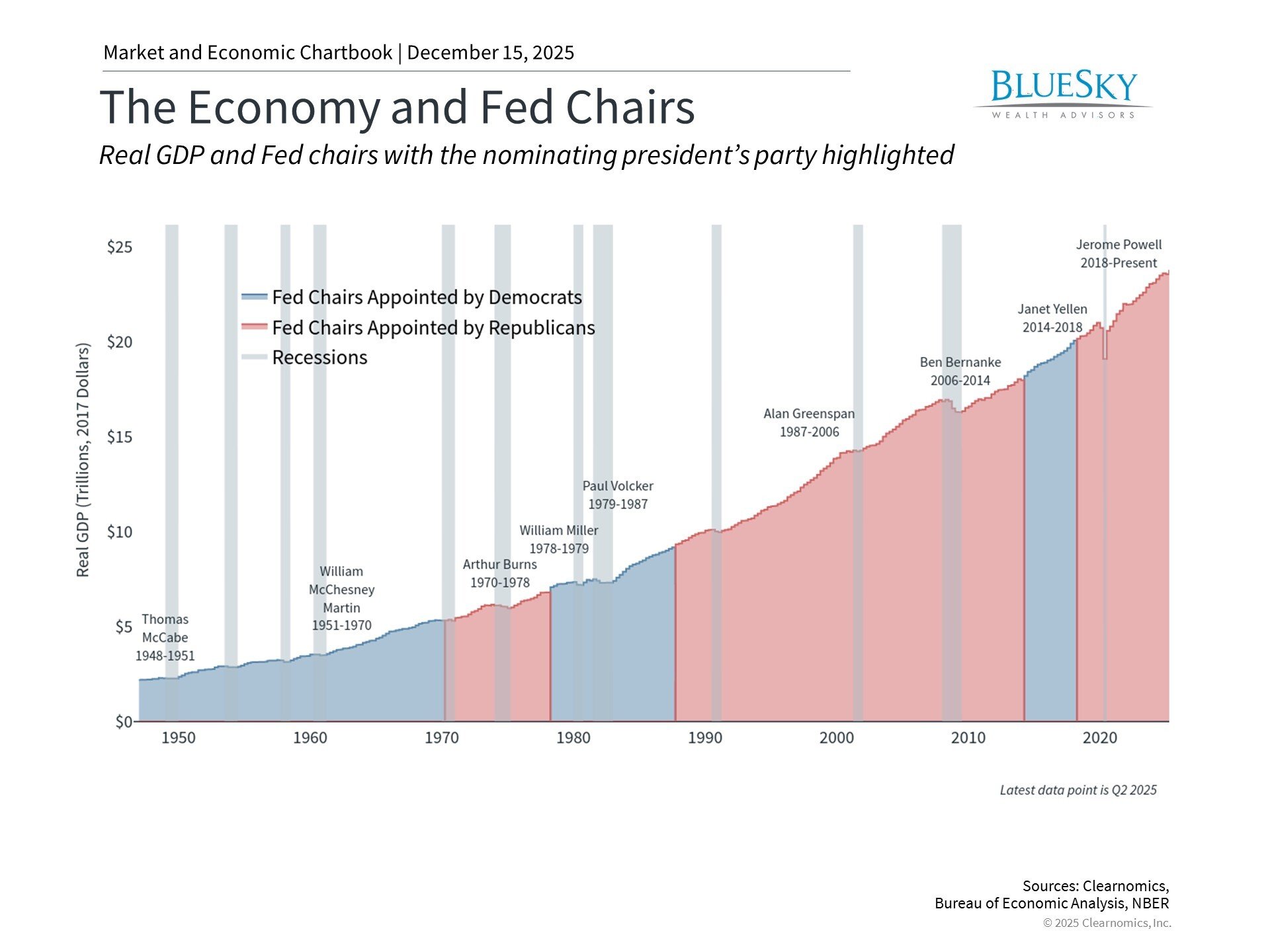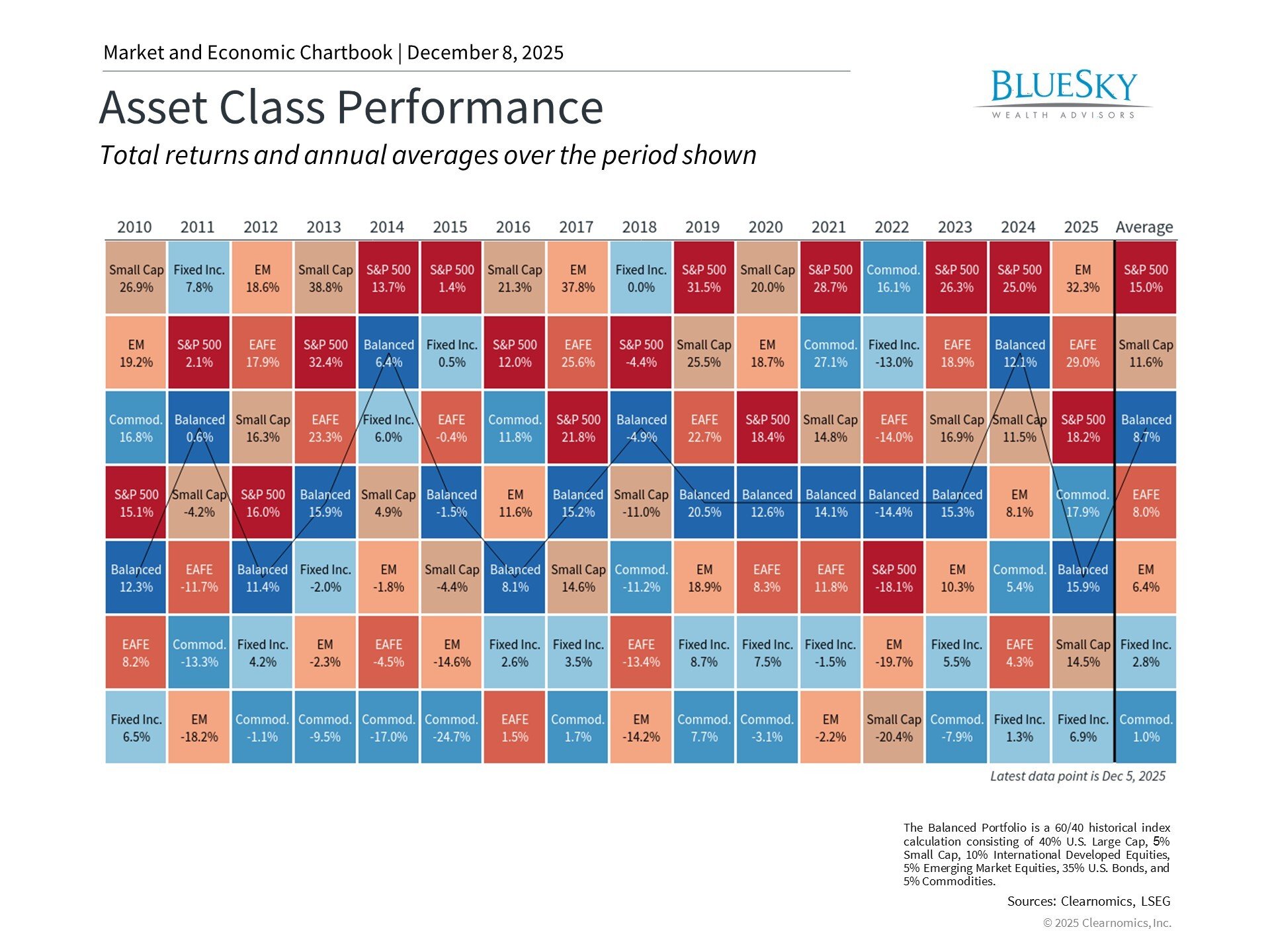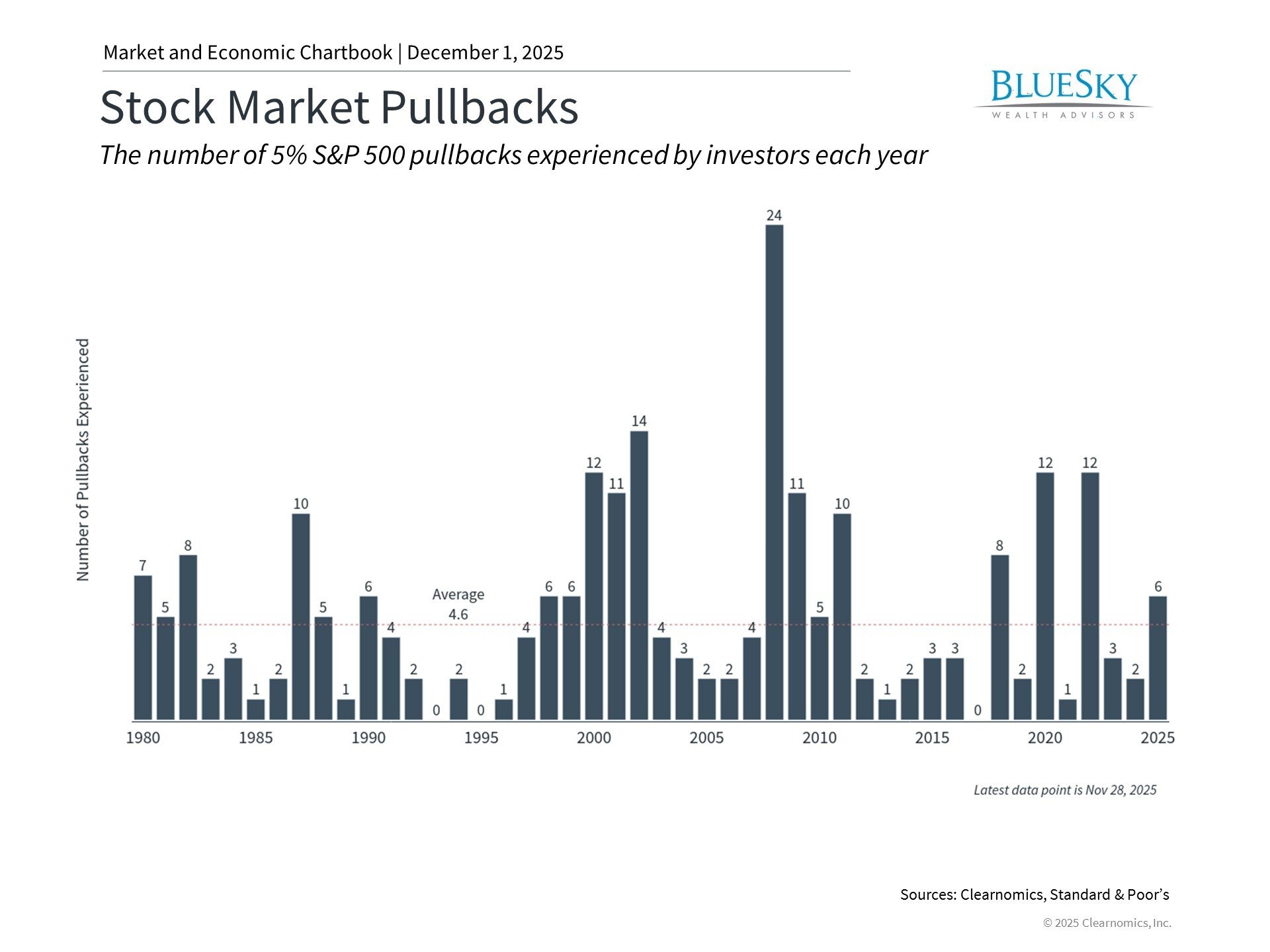
BITCOIN: WHAT YOU NEED TO KNOW
BITCOIN: WHAT YOU NEED TO KNOW

David L. Blain, CFA, is the Founder and CEO of BlueSky Wealth Advisors and the author of “Invest in Your Life, Not Just Your Portfolio.”
As we continue to see volatility in cryptocurrencies, namely Bitcoin, BlueSky CEO David L. Blain, CFA, straightens the narrative. Outlining the definitions of investing, speculating, and legal tender, in his recent video, David explains his philosophy on digital currency and BlueSky’s method of evidence-based investing.
Bitcoin: An Evidence-Based Approach
Image Source: tradingview.com/symbols/BTCUSD
Highlights:
0:00 – 0:27 | Introduction
0:27 – 2:37 | History of Currency, Cryptocurrency, Bitcoin
2:38 – 7:50 | Cryptocurrency as a Legal Tender, Security, Questionable Stability, Realizing the Purpose of a Currency, Functionality of Value
7:51 – 11:58 | Cryptocurrency as an Investment, Speculating vs. Investing, Classic Definition of an Investment
11:59 – 14:08 | Experienced Investing, the Purchase Price Parity, Currency as a Closed System
14:09 – 15:46 | Closing Summary
Transcript:
Good morning. This is David Blain here. I just wanted to talk to you today a little bit about Bitcoin. Unless you’ve been Rip van Winkle, asleep for the past few years, everyone has heard of Bitcoin. And I don’t want to go into the complete story behind Bitcoin today, but just to talk a little bit about why you would invest in it or why you wouldn’t, why we’re currently not here at BlueSky.
Cryptocurrency as Legal Tender
So, Bitcoin is a cryptocurrency, and so, I’ll kind of use those terms interchangeably, but there are other cryptocurrencies, Ethereum being one of the other larger ones. And there are other smaller ones that have been created, and they’re designed to be an alternative type of currency. And, as you know from your basic economics class, all currency is a medium of exchange. You know, back when, before fiat currency, you know, you had a farmer and a hunter, and instead of trading deer meat for corn, they decided that, hey, we’ll use these rocks or these shells, or some other medium of exchange to roughly equate. It’s a lot easier to transport. You know, maybe the farmer doesn’t need a whole deer or a bear or whatever. And so, it made the exchange of goods and services a lot more simple, and that’s how currencies arose. And, of course, now we have, they used to be backed by some sort of gold, but really, if you think about it, currencies are a fundamental value of labor, that they equate someone’s intellectual expertise, physical labor, something like that, and it’s converted into a readily transportable, exchangeable medium. It just makes commerce a lot easier, and it’s really kind of a revolutionary concept. We take it for granted today, but it certainly has made the world able to function a lot easier. So, anyway, that’s the point of a currency. And when we look at Bitcoin, you know, my take is that it’s not stable enough to use as legal tender.
So, legal tender, meaning a country or group of people agree that, hey, I will trade, you know, this product or service, my labor, for this product or service, and we’ll agree to use a certain medium of exchange. And countries allow legal tender. In the U.S., obviously, it’s the dollar, the Euro, the yen, you know, Chinese Yuan, things like that are legal tender. And it’s interesting, the first country in the world to accept as their official legal tender was El Salvador, and the dollar has been the official currency there.
But when we look at that, right now, as you probably heard, all the ransomware attacks, the pipeline, the schools, health systems, things like that are generally done in payment in Bitcoin. So, the good part is it allows for very secure transaction. Doesn’t allow the government to keep an eye on what you’re doing, which is a good thing in some instances, but it does facilitate, you know, the flip side of that is that it does facilitate criminal activity. Not that the dollar doesn’t, but it makes it very difficult to track down. Although I will say, the FBI did a fabulous job on that Colonial Pipeline hack in tracking that down. But anyway, the point is, as a legal tender, frankly, the cryptocurrencies are not, they’re just not stable enough to do that.
I’m going to share a chart real quick here with you. This is a price chart, a one-year price chart of Bitcoin. And so, at the beginning of the year, it was worth, or I’m sorry, last year, July of ’20, it was worth about $9,000. Now, in April, you can see here, it got up to about $63,000, and that’s pretty, we’ll talk about the investment thesis here in a minute, but remember, we’re talking about a currency that you should be able to exchange for goods and services. And then, of course, as we sit here today, it’s worth about, $34,000 a Bitcoin. Now, of course, the hidden little secret of all this is that it’s priced in dollars. So, to get into the market of Bitcoin, you need dollars, and while there are certainly things that you can buy in Bitcoin today, most famously, Tesla just announced they’re not going to accept Bitcoin anymore, one of the big promoters, Elon Musk. So, in order to get your money back out of that system, you got to reconvert it to dollars. But anyway, that volatility of that price of Bitcoin does not make it a good legal tender.
You want the value of your currency to be stable. If your currency’s fluctuating all around, nobody knows what it’s worth, and so they’re going to be reluctant to trade it for goods and services. You know, if you at your employer said, “Hey, I’d love to take Bitcoin as my salary.” Hey, that’s great if the price of Bitcoin went up, but what if it went down like it did from April to today, and all of a sudden you made 44% less money if you accepted Bitcoin as a salary? And once again, we’re talking about the purpose of a currency. The purpose of a currency is to provide a stable value mechanism for people to exchange goods and services, labor, you know, things like that. And under that standard, right now, it fails. It doesn’t mean that someday it won’t, it doesn’t mean that someday we won’t all be trading in cryptocurrency, but right now, as a currency, it fails to do that.
And so, maybe the dollar goes away and something else rises. And I’ll tell you if the dollar goes away as a valid currency, there’s going to be a lot of pain, and I don’t care how much Bitcoin you own, that pain is going to be felt by every human being on earth, if the dollar, all of a sudden, goes away as a stable currency. Maybe it’ll fade away. Maybe it’ll be replaced by crypto at some point. You know, that’s fine. I hope not. But the point is if it’s some sort of orderly transition, but the reality is if Bitcoin all of a sudden becomes the hot thing, the dollar does not, or other fiat currencies, you’re going to see a massive, massive problem. And Bitcoin won’t be much of an analgesic in that case.
All right, so as a currency, right now, it is not functioning well enough. Just think about an emerging market currency. You know, would you want the currency issued by, say, Rwanda or something like that? No, because it fluctuates too much. That’s why people trade dollars around the world because it’s been a stable store of value. Now, we’re kind of doing our best, it seems like, to destroy that, but the reality is it’s still the world’s currency.
Cryptocurrency as an Investment Vehicle
So, let’s talk about the second point, as an investment. Wow, you know, one year, from $9,000 to $60,000. Why didn’t you invest in that BlueSky? And I’ll tell you why. I subscribe to the definition of an investment as an enterprise that
- You can reasonably estimate the rate of return
- Provides potential cashflow,
- And some degree of safety of principal.
And that is sort of paraphrasing Benjamin Graham, the father of value investing, Phil Fisher, Warren Buffett, some of the sort of modern investors. That’s how we approach investing. Now, if you go buy a Bitcoin, it’s speculating. Nothing wrong with that, if you understand what you’re doing, or if you understand that you’re speculating and not investing. Investing is something that meets those three criteria, reasonably estimate the rate of return, provides potential cash flow, and some degree of safety of principal.
Now, safety, you know, can have a wide spectrum. Some people would say, you know, oh, well, stocks, that’s not safety. Well, the market itself, unless you think the whole world is going to collapse, does provide some degree of safety. It does vary in value, and occasionally, like, you have massive declines, sure. I can also reasonably estimate the rate of return. As you lengthen your time horizon, years, the rate of return of the stock market is somewhat easy to estimate. Now, not every year or what it’s going to do tomorrow, but as you stretch the timeframe out, it’s related to the growth in the economy and inflation and interest rates, and it’s reasonable, we have models to estimate those long-term rates of return, and they’re pretty, pretty accurate. The same thing with bonds, bonds are very easy to estimate the rate of return, especially if you hold them to maturity. When you buy them, you know what the yield to maturity is, and that will be your rate of return. Provides potential cashflow, there’s no cash flow from Bitcoins. With stocks, at least dividend stocks, you have some potential dividends. Bonds, of course, have income, real estate has income, things like that.
And the other thing is the terminal value of Bitcoin is so volatile that we would call it a speculative venture and not an investment as defined by the classic definition of investment. Once again, that’s fine if you want to speculate in it or you think it’s a good deal, but it’s not an investment. And in fact, we’ve talked about, or I’ve read a lot, I’ve theorized a lot about if Bitcoin were to take over, I mean, one of the advantages of Bitcoin is there’s a fixed number of Bitcoin that will ever be produced. Now, it can be subdivided into, I think, hundreds of thousands, or millions or something, of Bitcoin. It’ll be subdivided, but essentially, if you think of the world’s economy and a fixed number of Bitcoin, if Bitcoin or crypto would become a medium of exchange, it would be related to the value of all the goods and services in the world. But just the same as, while Bitcoin may have a fixed number of coins that will ever be produced, there’s nothing that prevents somebody from creating another cryptocurrency, as is the case right now. There are tons of other cryptocurrencies, so to say that there’s a limited number is true for an individual currency like Bitcoin, but not for the concept of cryptocurrencies. So, before you know it, you’ll be back into the same situation the governments have of being able to print money. All you got to do is create a new cryptocurrency.
And by the way, we don’t invest in regular currencies either. I have in the past, for those of you who don’t know, I’ve probably invested in every different possible thing you can imagine out there, currencies, options, futures, Bitcoin, gold, stocks, bonds, real estate, all types of real estate, things like that. Not only, I think experience one of the best teachers, and practical knowledge is a really good way to get experience. And so, I’ve invested in just about everything you can imagine that’s legal, and currency being one of them.
And if you don’t know this, there’s this thing called the purchase price parity, which basically means, in the world, the dollar is worth a certain amount of Euro and is worth a certain amount of yen, and it’s all based on the value of interest rates in that particular country and inflation. And so, when you’re trading with the Japanese and you’re trying to get into that economy and yen, you know, you’re taking into account, or the currency valuation between the dollar and the yen takes into account the differences in the economic growth of the countries, the difference in the inflation rates, and the difference in the interest rates. But it’s what we call a closed system, meaning that, for every winner, if the dollar goes up, it went up against something else, the yen, the Euro, whatever. And stocks, you know, all stocks can go up or all stocks can go down, but currency’s what’s called a closed system. And if you do the math on that, the mathematical expected return of trading in currencies is zero, okay? There’s no dispute about that. The expected return of trading in currencies is zero. And so, you know, I try not to invest in anything where the mathematical expected return is zero. And so, that’s for regular currencies, of course. Bitcoin is a little bit different, but it’s still the same principle, if you’re getting into it and out of it in the dollar.
So, anyway, that’s kind of our take on Bitcoin. There’s nothing wrong with it. It’s just a speculative type thing. It’s not functioning as a currency the way you would want a currency to function. And number two, as an investment, it fails my three basic points, but it is a speculative investment. I do think there’s some, I think it’s here to stay, the concept of cryptocurrencies. I think governments will probably, as you see in China already, governments will probably adopt digital currency. The U.S. Treasury is looking into that, but I do think the concept of Bitcoin is here to stay, and maybe someday, when it becomes a less of a speculative thing, maybe a little bit better legal tender, I think you’ll see more widespread adoption, but for right now, we’re not adopting it into our mainstream portfolios. We are looking at it for some alternative high-risk-type things, but for our main portfolios, we are not planning on adding it anytime soon.
So, if you have any questions on that, feel free to reach out to your advisory team or to me directly. I love talking about this stuff. I do a lot of research. I love learning about different types of things and studying how they may or may not fit into our client portfolios. So, feel free to ask questions, or if you have any comments of your own, please let us know. Happy to talk about it. Okay, that’s it for today’s message. Thanks for listening.
Want to hear more from BlueSky Wealth Advisors?
Check out some of our most popular blogs below.
Market Update: Inflation – Rising Rates Here to Stay?
2021 Financial Forecast: A Step-By-Step Video Series to Help Guide You through the Changes Ahead
GameStop Stock Frenzy with BlueSky CEO and Founder David L. Blain, CFA





